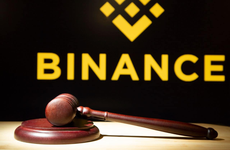What Cryptocurrency is all about, (Definition, Examples, Risks, History, and Investment)
 Photo by Kanchanara on Unsplash
Photo by Kanchanara on Unsplash
Definition
Cryptocurrency is a digital or virtual currency secured by cryptography, which makes it nearly impossible to counterfeit or double-spend. Many cryptocurrencies are decentralized networks based on blockchain technology, a distributed ledger enforced by a disparate network of computers.
A defining feature of cryptocurrencies is that they are generally not issued by any central authority, rendering them theoretically immune to government interference or manipulation.
Cryptocurrency is a typically decentralized digital currency designed to be used over the internet. Bitcoin, which launched in 2008, was the first cryptocurrency, and it remains the most substantial, most influential, best-known, and as of 2022, the most expensive. Over time Bitcoin and other cryptocurrencies like Ethereum have grown as digital alternatives to currencies issued by governments.
By market capitalization and popularity Bitcoin, Ethereum, Bitcoin Cash, and Litecoin are the most popular cryptocurrencies. Other well-known cryptocurrencies include Shib, Usdt, Tezos, EOS, Dogecoin, BNB, and ZCash. Some are similar to Bitcoin. Others are based on different technologies or have new features that allow them to do more than transfer value.
Facts about Cryptocurrencies
Cryptocurrencies make it possible to transfer asset value online without the need for any middleman like a bank or payment processor, allowing value to be transferred globally, near-instantly, 24/7, for lower fees.
Cryptocurrencies are usually not issued or controlled by any government or other central authority. They’re all managed by peer-to-peer networks of computers running free, open-source software. Generally, anyone who wants to participate can.
All transactions are examined, handled, verified, secured, and handled by a technology called a Blockchain.
Cryptocurrency blockchain is similar to a bank’s balance sheet or ledger. Each currency has its blockchain with an ongoing, constantly re-verified record of all transactions made using that currency.
Cryptocurrency blockchain is been distributed across participants of the digital currency’s entire network, unlike a bank’s ledger.
No institution, country, person, or third party is in dominance of it, and anyone can participate. A blockchain is a breakthrough technology only recently made possible through decades of computer science and mathematical innovations.
Cryptocurrency prices are unstable because the easy transfer of value between cryptocurrencies makes the market very volatile. You may sleep having $100 in your wallet and wake up with $200+, or you may wake up to see $20 or less.
Cryptocurrencies are digital or virtual currencies underpinned by cryptographic systems. They enable secure online payments without the use of third-party intermediaries.
The term Crypto refers to the various encryption algorithms and cryptographic techniques that safeguard these entries, such as elliptical curve encryption, public-private key pairs, and hashing functions.
Cryptocurrencies can be purchased from cryptocurrency exchanges or mined. They can be used for cross-border transfers, even though many countries have marked them illegal for use by citizens.
History of Cryptocurrency
The first and most popular cryptocurrency is Bitcoin. Which was invented by an anonymous person called Satoshi Nakamoto. Bitcoin was introduced to the world via a white paper in 2008. And today we have thousands of cryptocurrencies existing in the market.
Each cryptocurrency claims to have a different function and specification. For example, Ethereum's ether markets itself as gas for the underlying smart contract platform. While Ripple's XRP, is used by banks to facilitate transfers between different geographies.
Bitcoin was made available to the public in 2009 and remains the most widely traded and covered cryptocurrency. As of May 2022, there were over 19 million bitcoins in circulation, with a total market cap of around $576 billion. Only 21 million bitcoins will ever exist.
In the wake of Bitcoin's success, many other cryptocurrencies, known as "altcoins," have been launched. Some of these are clones or forks of Bitcoin, while others are new currencies built from scratch. They include Solana, Litecoin, Ethereum, Cardano, and EOS. By November 2021, the aggregate value of all the cryptocurrencies in existence was said to have reached over $2.1 trillion—Bitcoin represented approximately 41% of that total value.
Are Cryptocurrencies Legal?
Cryptocurrencies, unlike fiat currencies, are not backed by any public or private entities. Therefore it is difficult to make a case for their legal status in different financial jurisdictions globally.
And because cryptocurrencies have largely functioned outside most existing financial infrastructure, many countries have placed some limitations on their use by their citizens.
Crypto regulations by some countries
- El Salvador and the Central African Republic are the only countries in the world to accept Bitcoin as legal tender for monetary transactions as of 2022.
- Japan's Payment Services Act defines Bitcoin as legal property.
Cryptocurrency exchanges operating in the country are subject to collect information about the customer and details relating to the wire transfer. - Chinabanned cryptocurrency exchanges and mining within its borders.
- India also reported to be formulating a framework for cryptocurrencies in December.
- Cryptocurrencies are legal in the European Union. Derivatives and other products that use cryptocurrencies will need to qualify as financial instruments.
The European Commission released the Markets in Crypto-Assets (MiCA) regulation that sets safeguards for regulation and establishes rules for companies or vendors providing financial services using Cryptocurrencies in June 2021. - Within the United States, the biggest and most sophisticated financial market in the world, crypto derivatives such as Bitcoin futures are available on the Chicago Mercantile Exchange.
- Nigerian citizens are also not allowed to purchase cryptocurrencies with their bank account or cards. Or you may get your account blocked by the Central Bank of Nigeria (CBN).
How safe are cryptocurrency investments?
Cryptocurrencies have attracted a reputation as unstable investments due to high investor losses because of their volatility, scams, hacks, and bugs. Although the underlying cryptography is generally secure, the technical complexity of using and storing crypto assets can also be a problem for new users.
And even though cryptocurrencies are not a complete get-rich-quick scheme. It has reportedly made many people millionaires overnight.
Some Risks in Crypto Investment
In addition, anyone planning on investing in crypto should be aware of the following risks:
- User risk
Unlike traditional finance, cryptocurrency transactions can not be reversed, or canceled once it's initiated. By some estimates, about a fifth of all bitcoins is now inaccessible due to lost passwords or incorrect sending addresses. - Regulatory risks
The regulatory status of some cryptocurrencies is still unclear, with many governments seeking to regulate them as securities, currencies, or both. A sudden regulatory crackdown may make it tough to sell Cryptocurrencies or cause a market-wide price drop. - Counterparty risks Many investors and merchants rely on exchanges or other custodians to store their cryptocurrency. Theft or loss by one of these third parties could result in lost of one's entire investment.
- Management risks
Due to the lack of coherent regulations, there are few protections against deceptive or unethical management practices. Many investors have lost large sums to management teams that failed to deliver a product. - Programming risks
Many investment and lending platforms use automated smart contracts to control the movement of user deposits. An investor using one of these platforms assumes the risk that a bug or exploit in these programs could cause them to lose their investment. - Market Manipulation
Market manipulation remains a substantial problem in the Cryptocurrency space, and many exchangers have been accused of price manipulation, or trading against their customers.
Despite the speculative nature of the asset, some have been able to create substantial fortunes by taking on the risk of investing in early-stage cryptocurrencies. Some have also made thousands and millions of dollars from either trading, investing, or stacking cryptocurrencies.
Pros and Cons of Cryptocurrency
Cryptocurrencies, were introduced with the intent to revolutionize financial infrastructure. As with every revolution, however, there are tradeoffs involved. At the current stage of development for cryptocurrencies, there are many differences between the theoretical ideal of a decentralized system with cryptocurrencies and its practical implementation.
Some pros and cons of cryptocurrencies are as follows.
Pros
Decentralized and anonymous
As you already know, cryptocurrencies are not controlled or managed by anyone, a company, or any country.
When it comes to privacy and standalone transactions, cryptocurrency is always number one.
With cryptocurrencies, you can make millions of untracked transactions by any agency, including government officials. With cryptocurrencies, you will never have to pay any agencies when receiving or paying your clients, for example (tax).- More Secure
Cryptocurrencies promise to make it easier to transfer funds directly between parties without needing a trusted third party like a bank or a credit card company. Decentralized transfers are secured by the use of public and private keys, and different forms of incentive systems, such as proof-of-work or proof-of-stake.
Cryptocurrency is much more secure and is almost impossible for hackers to break through the system.
Anyone can participate
You can participate in the network no matter who you are, once you have a pc with an internet connection you can join the network and start mining cryptocurrencies. You should also understand your mining capacity is determined by the power of your Pc.
You can also be able to create a token or even coin that many people will be using, once you pass some required process.
Faster transfer of funds
Because they do not use third-party intermediaries, cryptocurrency transfers between two transacting parties are faster when compared to standard money transfers. Flash loans in decentralized finance are a good example of such decentralized transfers. These loans, are processed without backing collateral, can be executed within seconds and are used in trading.
High profit
Cryptocurrency investments can generate massive profits within a short period. Cryptocurrency markets have skyrocketed in value over the past decade, reaching almost $2 trillion at some point. As of May 2022, Bitcoin valued at more than $550 billion in crypto markets. You can wake up with a surprising amount of money in your wallet.
Cheaper and streamlines money transfer
The remittance economy is testing one of cryptocurrency's most prominent use cases. Currently, cryptocurrencies such as Bitcoin serve as intermediate currencies to streamline money transfers across borders. Thus, a fiat currency is converted to Bitcoin (or another cryptocurrency), transferred across borders, and, subsequently, converted to the destination fiat currency. This method streamlines the money transfer process and makes it cheaper.
Cons
Extremely Volatile and Unpredictable Price
Cryptocurrencies prices are extremely volatile and unpredictable, this is one of the major problem people always have with cryptocurrencies. So many have lost all their investment capital as a result of fallen cryptocurrencies. Crypto price can move from 100% to 10% or even to 1%.
An example of this is Luna coin: Luna coins caused so many problems in the crypto market following its crash on May 7, 2022. You should always understand the risks involved before investing in cryptocurrencies.
Anonymous claim
Cryptocurrencies claim to be an anonymous form of transaction, but cryptocurrencies are pseudonymous. They leave a digital trail that agencies such as the Federal Bureau of Investigation (FBI) can decipher. This opens up possibilities for governments or federal authorities to track the financial transactions of the parties involved.
Tools for cybercriminals
Because it is nearly impossible to track people who are involved in crypto transactions, it has become a popular tool with criminals, scammers, and fraudsters for nefarious activities such as money laundering and illicit purchases. The case of Dread Pirate Roberts, who ran a marketplace to sell drugs on the dark web, is already well known. Cryptocurrencies have also become a favorite of hackers who use them for ransomware activities.
Easily be lost
So many people have lost their crypto while trying to send it to other wallet holders, even though many exchangers will always warn you will lose your coins if you send it to an unsupported or invalid wallet address many people have lost so many funds this same way. And there is no way you can get the money back. Before sending funds to a wallet be sure to verify to avoid losing your money.
Wallet security
Though cryptocurrency blockchains are highly secure, other crypto repositories, such as exchanges and wallets, may be hacked. Many cryptocurrency exchanges and wallets have been hacked over the years, sometimes resulting in millions of dollars worth of "coins" stolen.
How and Where Do I Buy Cryptocurrencies?
You can purchase cryptocurrency from popular crypto exchanges such as Binance and Coinbase, or through wallets like Advcash, or even through brokers. Most of these platforms have payment options like bank cards, Peer-to-peer, or payment platform Payoneer or Advcash.
How to Generate Cryptocurrency
Cryptocurrencies are been generated through mining. For example, Bitcoin is generated through Bitcoin mining. This process involves downloading software that contains a partial or full history of transactions that have occurred in its network. Even though anyone with a computer and an Internet connection can mine cryptocurrency, the energy and resource-intensive nature of mining mean that larger firms dominate the industry.
Most Popular Cryptocurrencies
Bitcoin is the most popular cryptocurrency, followed by other cryptocurrencies such as Ethereum, Binance Coin, Solana, Litecoin, Dogecoin, Cardano, etc.
Conclusion
Cryptocurrencies are digital assets secured by cryptography. As a relatively new technology, they are highly speculative, and it is essential to understand the risks involved before investing.
Investing in cryptocurrencies and other initial coin offerings ("ICOs") is highly risky, volatile, and speculative. This article is not a recommendation by Ansaking or the writer to invest in cryptocurrencies or other ICOs. Because each individual's situation is unique, you should always consult a professional before making any financial decisions. Ansaking or the writer makes no representations or warranties as to the accuracy, correctness, or timeliness of the information provided here and should not be held responsible for any loss that may occur.
Related articles

Money laundering: Court orders Binance to disclose names of users to EFCC


More articles »
Latest Posts

Top 5 best cheapest and fastest VPS hosting providers

What is remote work? (Meaning, Examples, Type, Pros and Cons)

How to become a professional Writer, (step-by-step guide)

Tips for becoming a successful public speaker, and monetizing your skill

Creating And Selling A Successful YouTube Channel
More Posts »